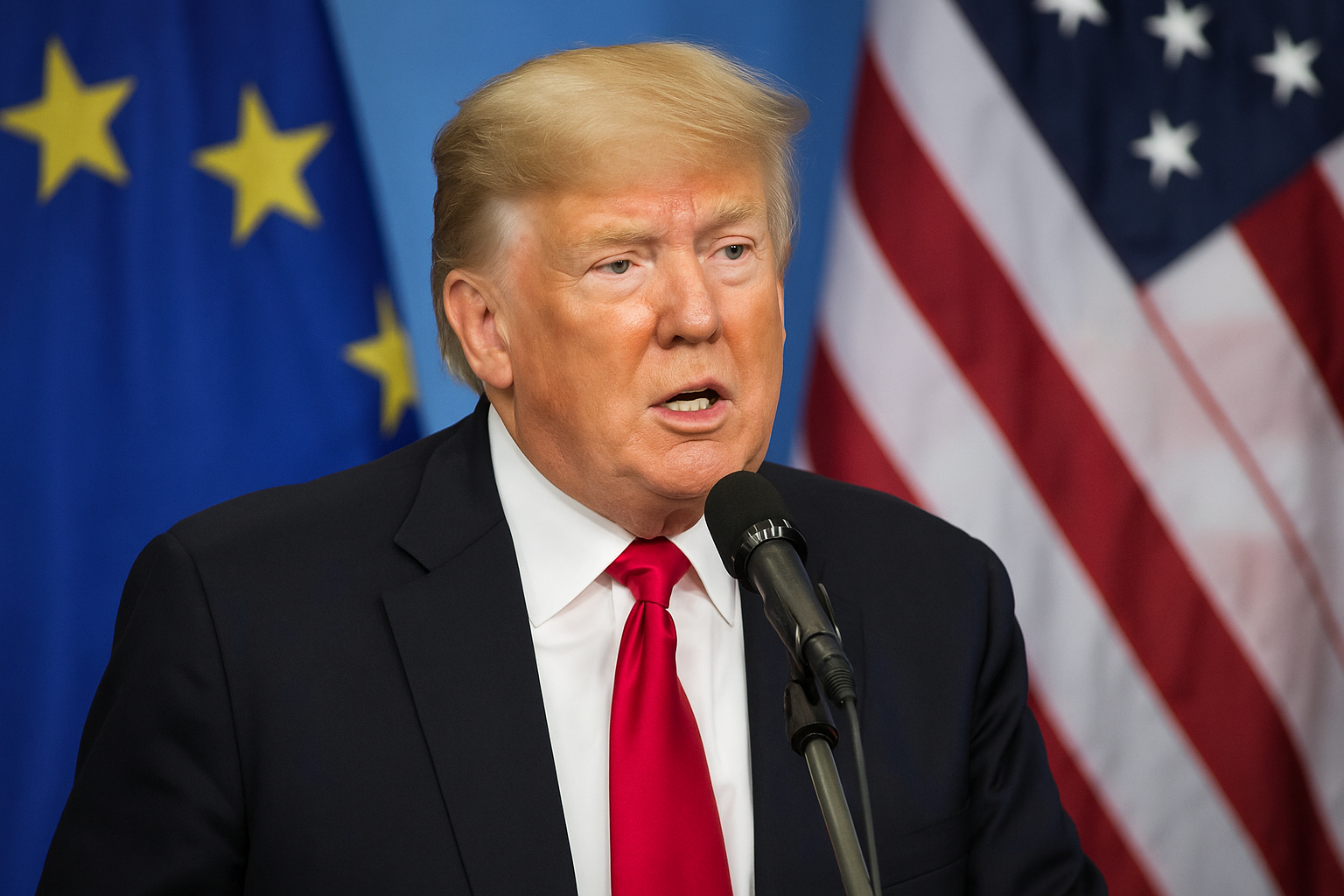Trump Turns Trade Into a Weapon: Calls on EU to Double Down With 100% Tariffs on India, China
By Tredu.com • 9/10/2025
Tredu

Tariff Threats Stoke Fears of Inflation and Global Market Turbulence
U.S. President Donald Trump is urging the European Union to impose 100% tariffs on imports from China and India, casting trade policy as a new front in his effort to pressure Moscow over its war in Ukraine. Trump has pledged that Washington would match any duties imposed by Brussels, positioning the move as a coordinated attempt to weaken Russia’s financial lifelines.
The proposal, raised in discussions with EU sanctions envoy David O’Sullivan and other officials, is framed as a direct strike at two of Russia’s biggest oil buyers. By raising costs for Beijing and New Delhi, the administration aims to choke revenue streams that continue to support the Kremlin’s wartime economy. Analysts say the request signals a shift from conventional sanctions toward more aggressive, trade-driven leverage.
Economic Stakes and Trade Tensions
The plan risks deepening trade frictions with key partners. Trump recently lifted U.S. tariffs on Indian goods to 50%, a move that Indian officials warn could cut GDP by about 0.5%. Despite the pressure, trade talks between Trump and Indian Prime Minister Narendra Modi remain active, with both sides seeking to avoid a full-scale rupture.
China, already at odds with Washington over technology restrictions, has strongly objected to the proposal, calling it protectionist and destabilizing. EU leaders, for their part, are weighing whether such tariffs would strengthen Western resolve against Russia or risk harming European exporters in a fragile economy.
Potential Market Impact
Financial markets could see swift consequences if the proposal gains momentum.
- Inflation risk: Higher tariffs on major trading partners could raise input costs globally, lifting inflation just as central banks try to stabilize prices.
- Equities: European and Asian stock markets are vulnerable to sharp swings, particularly in sectors reliant on cross-border supply chains.
- Currencies: Safe-haven assets such as the U.S. dollar, Japanese yen, and gold may benefit if trade tensions escalate.
Some analysts warn that retaliation from China or India could further destabilize global supply chains, with ripple effects for technology, manufacturing, and energy markets.
Policy Shift: Tariffs as Diplomacy
Trump’s push represents a broader policy pivot, transforming tariffs from a negotiating tool into a weapon of geopolitical strategy. By tying trade measures directly to Russia’s war financing, the administration signals it will use economic leverage as much as military aid to pressure adversaries.
European officials have not confirmed whether the bloc will adopt the measures, but diplomats suggest discussions are ongoing. For now, markets remain sensitive to every headline, as traders brace for either a tariff confrontation or a diplomatic compromise.
In summary, Trump’s call for Europe to join a 100% tariff campaign against China and India highlights how trade has become a core battlefield of geopolitics. The strategy carries far-reaching consequences for inflation, supply chains, and global financial stability, underscoring the risks of weaponizing commerce in pursuit of foreign policy goals.

How to Trade Like a Pro
Unlock the secrets of professional trading with our comprehensive guide. Discover proven strategies, risk management techniques, and market insights that will help you navigate the financial markets confidently and successfully.


